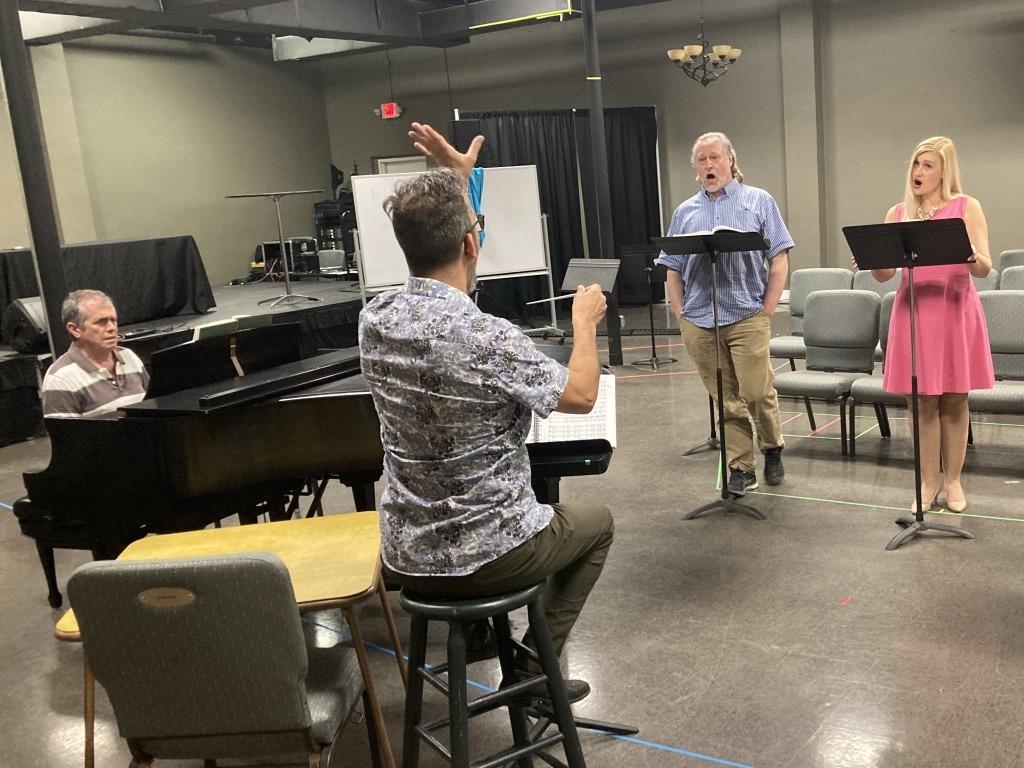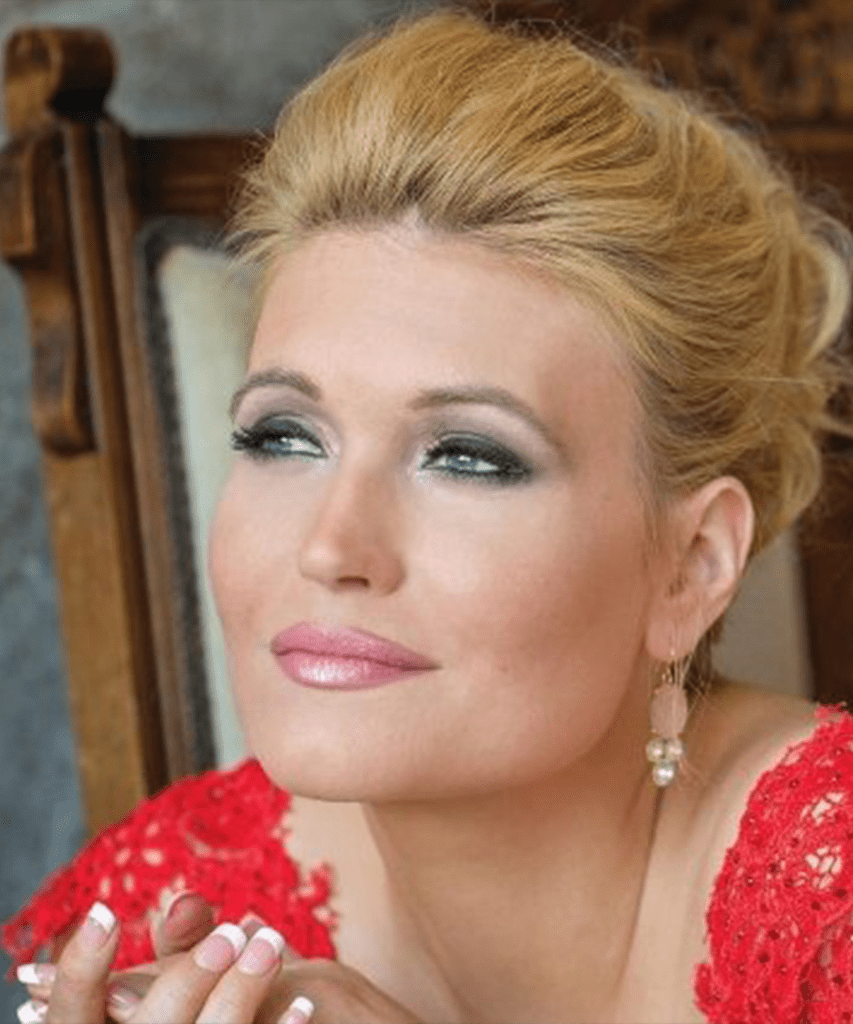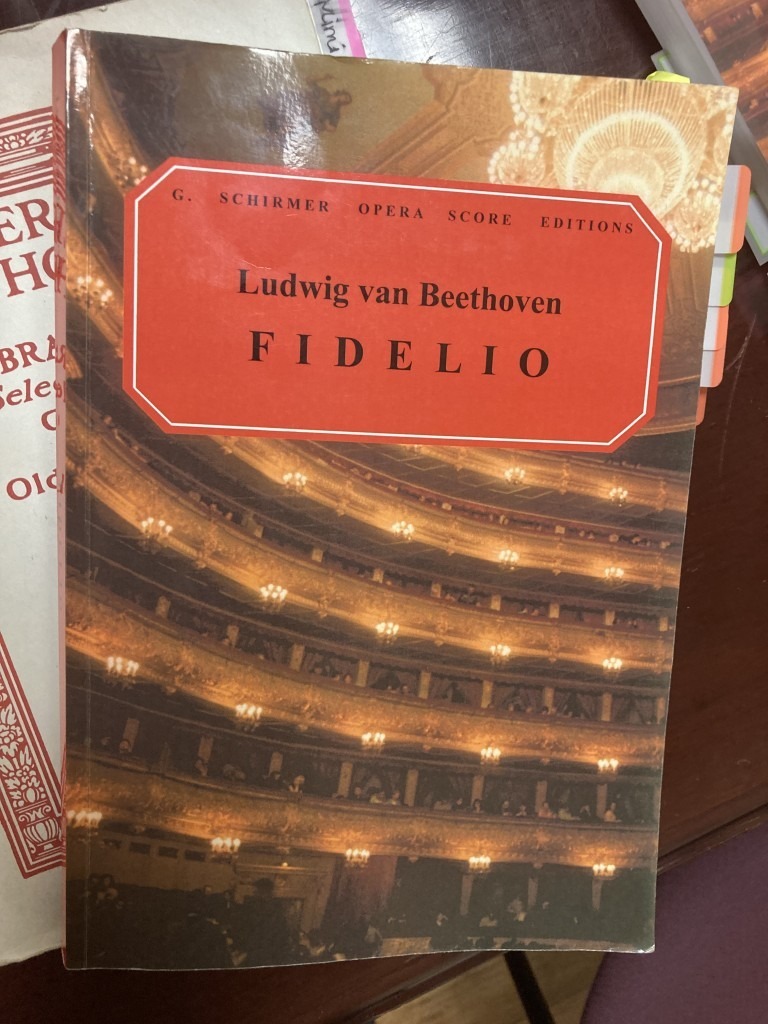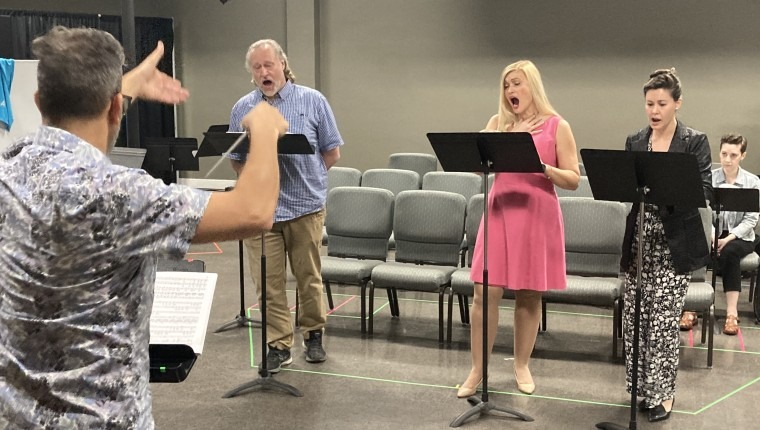By Kurt Loft
. . .
St. Pete Opera Raises Dramatic Curtain
on Beethoven’s Fidelio
. . .
March 24-28
Palladium Theater
Details here
. . .
The story goes like this. . . an autocratic governor wrongfully imprisons an innocent man, whose wife − seeking liberty and justice − risks her own life to rescue her husband.
Sound like a page in Florida politics? Well, if Beethoven lived here today, he might have based his only opera, Fidelio, on the capricious decrees of our state. The stark melodrama seems as relevant today as it was at its premiere in 1805 − when Napoleon embarked on claiming a continent – so audiences can connect their own dots to this enduring story.

“It’s about democracy over tyranny and the things in life that aren’t fair,’’ says Mark Sforzini, conductor and artistic director of the St. Petersburg Opera, which stages a new production of Fidelio in three performances March 24-28.
The essence of Fidelio is the love between the two central characters, Leonore and Florestan, and the courage she exhibits by disguising herself as a man named Fidelio and rescuing her husband from confinement.
But there’s something more. In contrast to countless operas before and after, Fidelio is not about the suppression or demise of a doomed female character, but just the opposite – Leonore is a moral champion.
In this light, Beethoven might be thought of as an early advocate of women’s rights and emancipation, argues Lewis Lockwood in his book Beethoven: The Music and the Life – “The work has resonated through two centuries as a celebration of female heroism. Fidelio is a powerful exception (to female oppression), in that the suffering victim is the man, the agent of salvation the woman.’’
Portraying Leonore/Fidelio is no easy assignment, says Kirsten Chambers, a veteran of the Metropolitan Opera who takes center stage in three performances at St. Pete’s Palladium Theater. Beethoven’s writing is wide-ranging and requires a soprano who can sing low and high textures while competing with large male voices and a rich orchestral sound.
“Performing Leonore is a huge challenge for me,’’ Chambers says. “She’s technically one of the most challenging roles I have ever sung. You must have great technique and stamina to sing this role with ease.’’

The singers also need to shift linguistic gears. Fidelio is a singspiel – German for “spoken opera’’ – and for this production they will sing in the original language but speak in English. The point is to make it more accessible.
“This is a special production because of how we present the dialog,’’ says Sforzini. “We thought, why does an English-speaking audience want to sit there for over two hours and listen to endless German dialog?’’
Beethoven certainly wanted his most prized creation (he cherished it above everything else he composed) to be accessible. But opera didn’t come naturally for a composer who focused his career on instrumental music, and he struggled over Fidelio more than any other project. He revised it twice over 10 years, and wrote four overtures. For the final 1814 version, he reduced it from three to two acts, compressing or tossing a lot of the original material.

St. Petersburg Opera makes further reductions to accommodate its small stage. Sforzini cut in half the scoring of four horns, three trombones and two trumpets, but kept the critical roles played by piccolo and contrabassoon.
“Beethoven is famous for introducing piccolo and contrabassoon to the orchestra so I definitely wanted to retain those colors,’’ he adds. “The piccolo plays in many of the victory moments, and the contrabassoon is featured in the Leonora and Rocco duet when they’re underground digging the grave for Florestan − very creepy.’’
The opera changes its colors in Act II, when Beethoven is fully immersed in themes so important to him – liberty, freedom, individual honor, heroism. Although locked away in the evil Don Pizzaro’s subterranean dungeon as a kidnapped political prisoner, Florestan’s spirit remains unbroken.
Beethoven, who was becoming increasingly deaf at the time, identified with this isolated character, and as a result wrote some of his finest music.
. . .
The difference between these two acts – domestic comedy followed by heroic melodrama – mirrors the change between the composer’s Second and Third symphonies. The power of the dungeon scene shows Beethoven as a symphonist fully embracing the theater, with music elevating the storyline, especially in Florestan’s great aria, “God! What darkness here!’’
. . .
As Act II reaches its climax, Leonore shines her brightest. “Once she rescues Florestan in the finale, she’s in the highest part of her voice and you feel her radiant joy and love floating and soaring over the orchestra,’’ Chambers says. “It’s a role that’s an absolute thrill to sing and embody from start to finish.’’
. . .
St. Petersburg Opera presents Fidelio
March 24 at 8 pm, March 26 at 2 pm, March 28 at 7:30 pm
Palladium Theater, 253 5th Ave. N., St. Petersburg
727-822-3590
mypalladium.org



